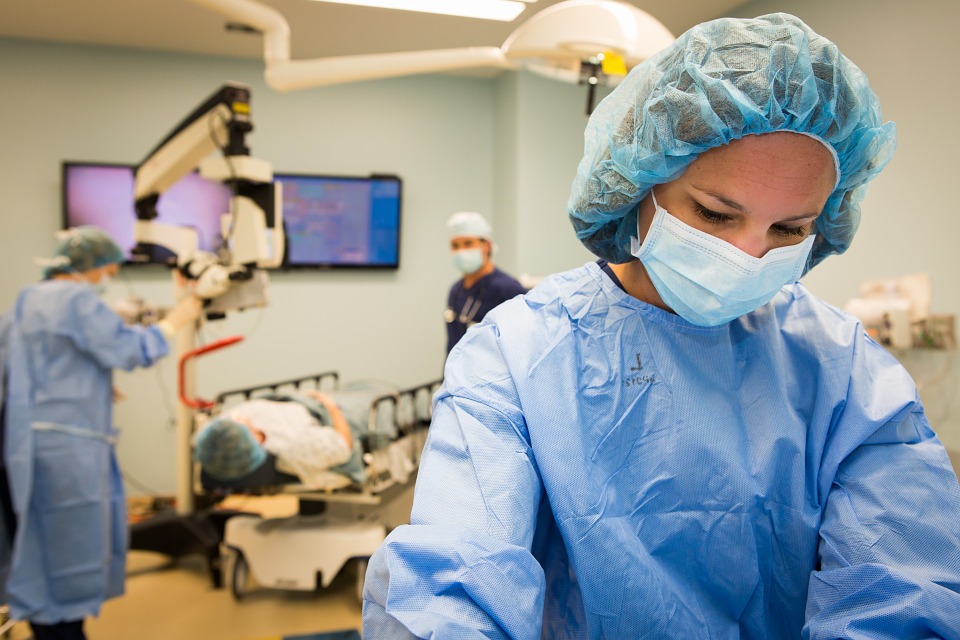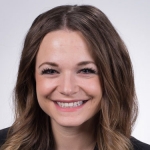I clearly remember making my third-year clinical schedule and the stress of placing each rotation in the “correct place.” While I was indecisive, switching my schedule many times, I knew I wanted to do my surgery rotation first. At this point, I had no idea what kind of doctor I wanted to be; all I knew was that I was not going to be a surgeon. Why not put one of the toughest third-year rotations first to get it out of the way?
My third year began, and my first week of clinical rotations arrived quickly. I started on vascular surgery at Banner. My chief resident must have noticed the deer-in-the headlights look on my face because she quickly asked if I was on my first clinical rotation. After I confirmed, she reassured me, saying, “Don’t worry, I have your back.” She showed me the ropes: how to scrub in, the “Dr. Feinstein-approved presentation,” where to get scrubs, how to pre-round, and more. Somehow, I had successfully survived my first week of surgery, and my confidence as a brand new third year was rising.
My chief told me to come in on Saturday, while assuring me that the weekends were relaxed and I would most likely be going home early. We finished rounding around 10 am, and my resident told me to go home. As I was packing up to leave, she got a text message from our attending stating that a patient was being flown in for a ruptured abdominal aortic aneurysm and would be here in 10 minutes. I dropped my belongings, and we quickly sped off to meet him at the helipad elevators.
We wheeled our patient directly to the OR as our attending explained that the operative mortality of a ruptured AAA was 50%. There was a 50% chance that this woman would not make it out of the OR alive. To this day, I have never seen an emergent surgery done so calmly, deliberately, and efficiently. It felt like mere minutes before we had exposed the abdominal aorta, removing the spleen in the process. It seemed as though the surgery was proceeding normally; then our patient started coding. Before panic could set in the OR, our attending calmly commanded the room, giving out orders to everyone. He looked at me and told me to start compressions. He and the anesthesiologist worked in unison trying to save the patient while my resident and I continued resuscitation efforts.
That was the first time I saw a patient die. I was helping to close the abdomen when my attending called me out of the room. He wanted to make sure I was alright, but he also felt it was important for me to go with him to deliver the awful news to the family. My stomach was in knots, and I felt as though I would be intruding on a sensitive and private moment. However, I knew that this was a situation that I would have to see and learn to address in the future, and I followed him apprehensively. This was the moment that erased any stereotypical beliefs I had about a surgeon’s ability to empathize and relate to his or her patients. In a week of surgery, I saw continuity of care at the vascular clinic, felt as though I had forged sincere relationships, and participated in providing care and support to a family on one of the worst days of their lives.
After 3 months, deep down I knew I was going to do general surgery. I did my due diligence on my other rotations and tried to see myself practicing in any other field. At the end of my third year, I thought about my time on surgery and how I felt excited at the prospect of waking up at odd times in the morning, never looking up at the clock wondering when my day would end.
Surgery encompasses the qualities I envisioned when making medicine my career. I love the diagnostic search for the etiology of vague abdominal pain, followed by the medical and surgical management necessary to cure the ailment and alleviate suffering. I find post-operative management fulfilling because it is a time when we have the opportunity to aid a patient through a vulnerable time in their lives. Being in the operating room is engaging and enthralling; no surgery is the same and each case poses new obstacles forcing the surgeon to make difficult decisions, often times while under duress. I originally entered medical school because of the relationships I would form with patients and the positive impact I could have on their lives. That desire has not changed, and surgery provided me with this opportunity as much as any other field.
Brittany Sullivan was raised in Arizona and attended college in Washington at Seattle University. She majored in Spanish with a biology and chemistry minor. She worked at the University of Washington doing diabetic cardiomyopathy research for two years between college and medical school. She will be going into general surgery and is interested in a vascular surgery fellowship.


